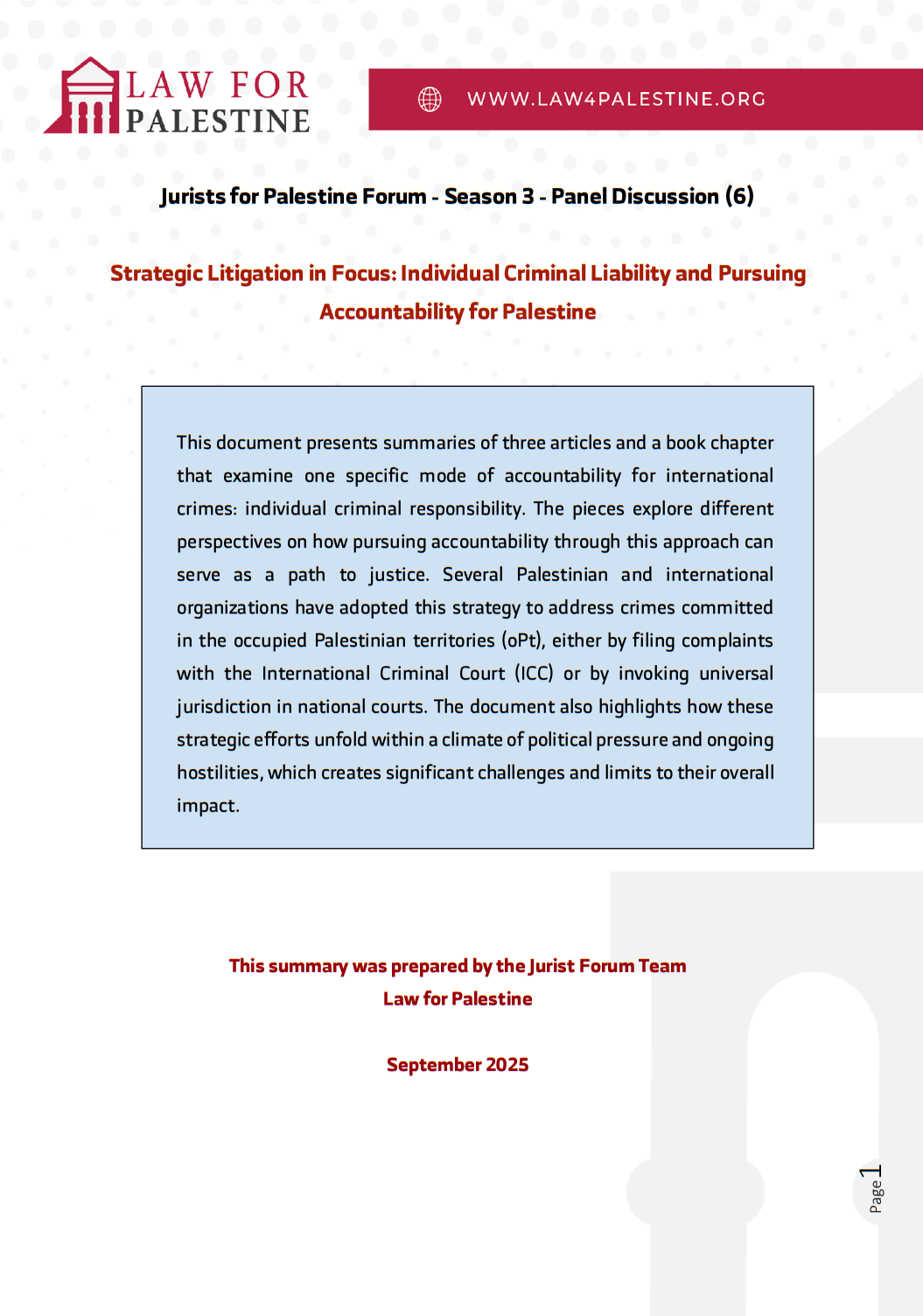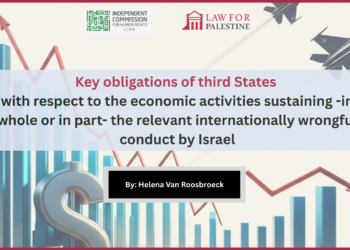Preparatory material | Strategic Litigation in Focus: Individual Criminal Liability and Pursuing Accountability for Palestine
Jurists for Palestine Forum – Season 3 – Panel Discussion (6)
This summary was prepared by the Jurist Forum Team
This document presents summaries of three articles and a book chapter that examine one specific mode of accountability for international crimes: individual criminal responsibility. The pieces explore different perspectives on how pursuing accountability through this approach can serve as a path to justice. Several Palestinian and international organizations have adopted this strategy to address crimes committed in the occupied Palestinian territories (oPt), either by filing complaints with the International Criminal Court (ICC) or by invoking universal jurisdiction in national courts. The document also highlights how these strategic efforts unfold within a climate of political pressure and ongoing hostilities, which creates significant challenges and limits to their overall impact.
Summary:
- The first article argues that the ICC investigation into Palestine should be viewed as a tactical opening rather than a path to liberation. It suggests that when law is combined with political strategy and grassroots activism, it can support broader struggles for justice and contribute to dismantling settler-colonial structures. The authors contend that framing apartheid charges at the ICC strengthens Palestinian organizing by linking legal advocacy with global anti-racist and anti-colonial movements. Ultimately, they conclude that genuine justice for Palestinians rests not on legal proceedings alone, but on political struggle, decolonization, and the power of popular mobilization.
- The second article examines Universal Jurisdiction (UJ) as a vital tool for closing accountability gaps for grave crimes, while noting that its effectiveness is often undermined by political interference. Unlike the ICC, UJ prosecutions do not require a complex ‘gravity’ threshold analysis, allowing them to address crimes committed even before the ICC’s jurisdiction over Palestine began in June 2014. This makes UJ a crucial supplementary avenue for pursuing justice.
- The third piece is a book chapter by Shane Darcy in which he argues that the treatment of Palestinian prisoners and detainees may constitute international crimes under ICC jurisdiction, with potential links to the crime of apartheid. Corporate involvement in detention systems, such as G4S, raises liability questions under aiding and abetting standards. While the ICC cannot prosecute corporations, it can pursue responsible individuals, and even without prosecutions, international law can deter complicity and influence corporate behavior.
- The fourth article argues that Israel’s tolerance – and in some cases active participation – in acts of settler violence amounts to tacit state endorsement aimed at furthering annexation of Palestinian territory. This behavior constitutes a breach of Israel’s responsibilities under both international humanitarian law (IHL) and international human rights law (IHRL). The article also underscores the potential for individual criminal liability under international law for those responsible for perpetrating settler violence.
Read the full preparatory material through this link. Click





